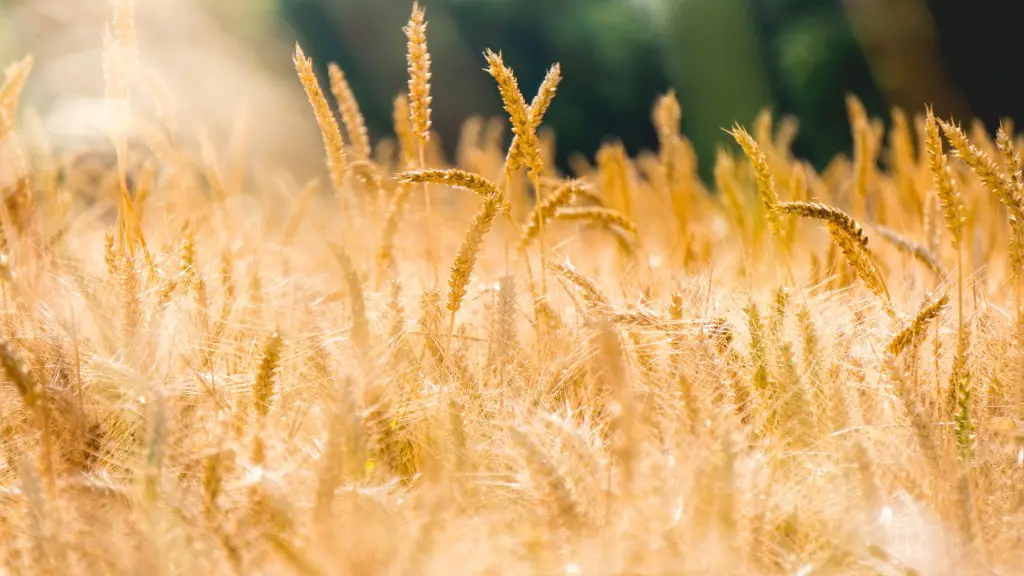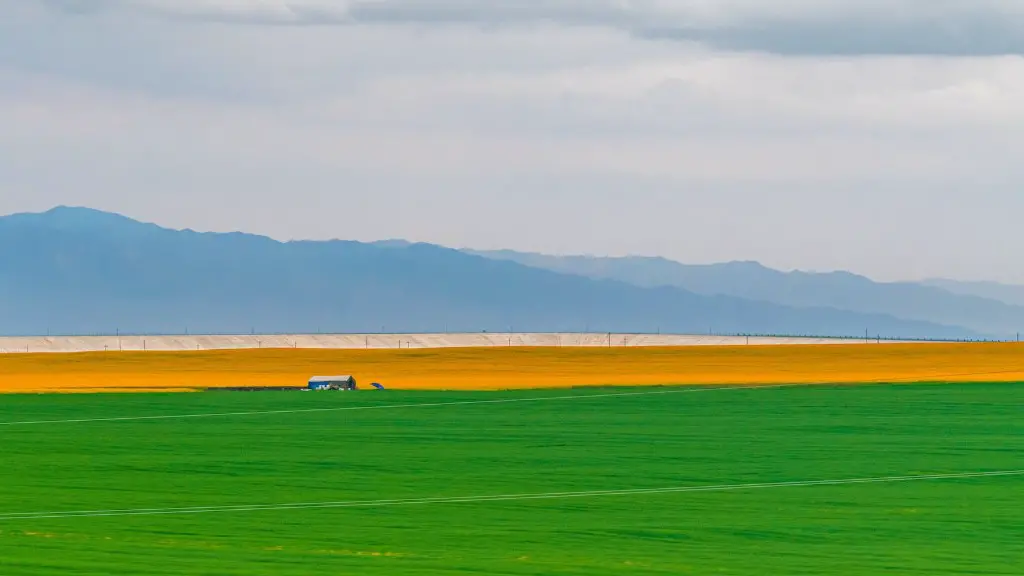Agriculture is one of the oldest arts in human history. It is an essential part of our world, providing food, fibre, fuel and shelter for our planet’s growing population. It is also a highly complex and dynamic subject, involving multiple disciplines such as biology, chemistry and economics.
Agriculture is composed of many activities, from growing crops to managing livestock. Crops are specifically grown for food, either for human consumption or as animal feed. Livestock are cared for and raised for a range of purposes, from meat production to milk and wool production. Sustainable agricultural practices aim to minimise environmental harm while maximising output and efficiency.
Agricultural science is the study of the production, distribution and consumption of food and other agricultural products. It involves the use of both traditional and modern scientific knowledge and methods to understand, develop and improve agrarian systems and practices. Agricultural science includes soil science, grazing management, animal husbandry, and biochemistry.
Farm economics is the study of agricultural production and the markets in which food and agricultural products are exchanged. It considers the effects of supply and demand as well as factors such as weather, technology and policy on the food system. Farm economics also looks at the production, pricing and marketing of agricultural products, as well as the interaction between agricultural resources and markets.
Agricultural and resource economics is broadly concerned with the understanding, management and distribution of the resources used to produce food and other agricultural products. It deals with the sustainable use of natural resources, environmental management, and land-use policy. It also examines the trade-offs between food security, economic development and environmental objectives.
History of Agriculture
Agriculture has been practised for thousands of years, since the dawn of civilization. It was one of the first human activities and has evolved in response to changing needs and technologies. Early agriculture was based on the traditional knowledge of generations and focused on domestic resources, such as stone tools and livestock, to produce food. As the human population grew, so did the need for larger agricultural operations and an increased variety of crops.
Agriculture has experienced major breakthroughs throughout history, such as the adoption of irrigation systems and the introduction of chemical fertilisers and pesticides. As a result, agricultural production increased and crop yields grew. Today, advances in biotechnology are enabling scientists to make further progress in the fields of crop research and development.
Agriculture is not only the foundation of food production and distribution – it is also an important source of employment in many parts of the world. In some areas, small-scale agricultural activity is the only means of livelihood for local communities.
Challenges Facing Agriculture
Agricultural production is currently facing numerous challenges. These include climate change, economic volatility, and the rising demand for food and other agricultural products. Climate change poses a significant threat to agricultural production, as changes in temperature and precipitation can reduce crop yields and increase the risk of crop failure.
Economic volatility can also have a significant effect on agricultural production. Free trade agreements, subsidies, and changing production costs can all have an effect on what is grown and produced in a given area. Furthermore, changes in global markets or a poor harvest can lead to food shortages and rising prices.
In addition, a rising global population means increased demand for food and other agricultural products, while resources such as land and water are becoming increasingly scarce. This means that agriculture must be managed in a sustainable way and food producers must be able to adapt quickly to changing conditions.
Role of Technology in Agriculture
Technology plays an important role in the agricultural sector. A variety of tools, such as GPS systems and drones, can be used to monitor crops and livestock. Data gathered from these systems can be used to optimise the management of agricultural operations.
Modern technologies, such as the internet of things (IoT), are also being used to facilitate better communication between producers and consumers. For example, farmers can use IoT to track and monitor their product from farm to table, allowing them to keep tabs on food safety and quality.
In addition, biotechnology is playing an increasingly important role in agricultural production. Scientists are now able to modify plants and animals to create higher-yielding, disease-resistant and faster-growing varieties.
Making Agriculture Sustainable
In order to make agriculture sustainable in the face of climate change, economic volatility, and a growing global population, it is important to use a range of strategies and technologies. These include environmentally friendly farming practices such as crop rotation, integrated pest management and water conservation.
It is also important to promote sustainable agriculture through education and research. There are a number of organizations dedicated to researching, developing and promoting sustainable agricultural practices, such as the United Nations Environment Programme, the International Centre for Tree Crops Research and the International Crops Research Institute for the Semi-arid Tropics.
In addition, governments can play a key role by providing financial assistance to farmers and promoting sustainable, agro-ecological farming practices. Public-private partnerships can also be beneficial, as they can provide farmers with access to resources they may not have otherwise.
Agricultural Trade
Agriculture is one of the most important sectors of the global economy. International trade in agricultural products has been growing steadily in recent years, reaching a total value of more than $1 trillion in 2019.
Agricultural trade involves the buying and selling of crops, livestock and other agricultural products between countries. These trades can be beneficial for countries with a comparative advantage in the production of certain products. For example, a country with abundant agricultural resources can export its products to countries in need, improving yields and nutrition levels.
Agricultural trade can also be beneficial for countries with less favourable climates or limited access to resources. By relying on imports, these countries can access the products they need at a lower cost. This can help them to meet the demands of their population and provide greater economic stability.
Food Security
Food security is an increasingly important issue in today’s world. It is defined as the availability of food and one’s ability to access it. Poor food security can lead to food shortages, malnutrition, and even starvation.
Agriculture plays an essential role in food security, as the availability of food is directly related to the production of food. Increasing the productivity of agriculture is thus critical to ensuring adequate food supplies and nutrition levels globally.
To this end, agricultural technology can be used to increase crop yields and reduce wastage. In addition, government policies such as subsidies and trade agreements can have a positive effect on food security.
Environmental Impact of Agriculture
Agriculture has had a great impact on the environment. Crop production, grazing, and the use of fertilisers, pesticides and herbicides can lead to land degradation and water pollution. The unsustainable use of natural resources can also cause climate change, soil erosion and the destruction of wildlife habitats.
In order to reduce the environmental impact of agriculture, farmers must use sustainable practices such as crop rotation, integrated pest management and water conservation. Governments can also play a role by setting regulations and investing in research and development.
Technology can also be used to reduce the environmental impact of agriculture. Digital tools, such as GPS systems and drones, can be used to better monitor agricultural operations and identify areas of potential concern. In addition, automation and robotics can help to reduce labour costs and improve agricultural efficiency.


